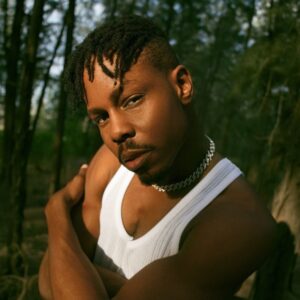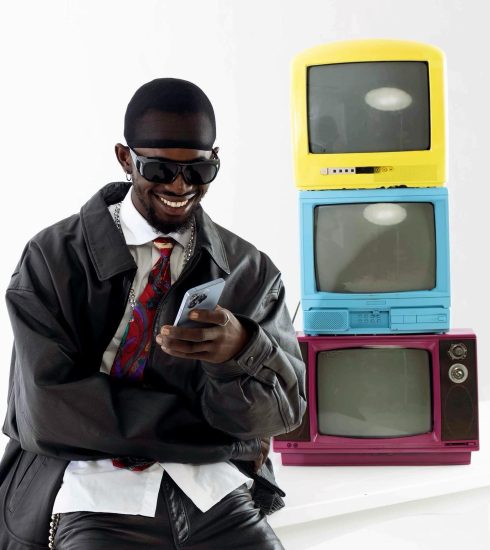W.D Fard Muhammad: The Man, The Mystery, ‘The Savior’. A Story Told Through Cinematic Lenses.
Once in our human lifetime a unique individual appears amongst us to render a humanitarian service that is unparallel to any to have ever existed. Many names come to mind when I sob on this subject. There are many who’s stories are left untold or ever told and there are many who have several biopics in their honor.
One of such individuals who walked the earth and led a generation but never got his story told is W.D Fard Muhammad. The mysterious man who found himself amongst African-Americans at a time so crucial that all they needed was a beacon of light and hope. The story of W.D Fard Muhammad is so amply told in the biopic ‘The Savior’ by one of the seeds of a movement he sowed many years ago.
“The Savior” is an ambitious cinematic project that delves into the untold history of The Nation of Islam, focusing on the enigmatic figure, W.D Fard Muhammad. Set against the backdrop of Detroit, Michigan, in July 1930, the film unfolds as a beacon of hope for the destitute black citizens. The narrative traces the pivotal initial encounter between W.D Fard Muhammad, the founder of The Nation of Islam, and Elijah Poole, later known as Elijah Muhammad.
What sets “The Savior” apart is its unique portrayal of a crucial period in history, offering a rare glimpse into the prelusive years of The Nation of Islam. The project is a labor of love, inspired by the filmmaker’s personal connection to the stories of sacrifice and resilience from the soldiers he grew up around.
The genesis of the project came to the filmmaker during a poignant moment while watching a film on Medgar Evers. Touched by Evers’ sacrifice for his people, the filmmaker was moved to honor such dedication. This emotional catalyst led to the inception of “The Savior,” initially conceived as “My Name is W.F Muhammad” before evolving into its current form.
The character of W.D Fard Muhammad is meticulously crafted, reflecting the filmmaker’s vision of a calm, calculated, and wise figure with infinite wisdom. Drawing from personal experiences and extensive research, the script captures the essence of Fard Muhammad’s teachings, often communicated through coded language, mirroring the teachings later elucidated by The Most Honorable Elijah Muhammad.
Despite starting as a feature script, “The Savior” evolved into a short film, and further expansion into a TV show is envisioned to do justice to the vast and intricate narrative. With a deep-rooted connection to The Nation, the filmmaker aims to bring to life the stories of W.D Fard Muhammad, presenting a cinematic experience that resonates with historical depth and cultural significance. As a work in progress, “The Savior” is a testament to the dedication and passion driving this ambitious project.
Filmmaker Sulaiman Muhammad the director and creator behind the biopic talked to Colossium Magazine editor in chief, Eugene Ossei about the upcoming film.
Tell me about ‘The Savior’
The Savior is a project that I’ve been working on for some years now. The Savior is based on a true story and introduces a Mysterious Man at the time (W.D Fard Muhammad) who arrives to the destitute black citizens of Detroit, Michigan in July, 1930 and brings hope and salvation. The film is about the prelusive years of The Nation of Islam. This film is the first of its kind, because it details the first meeting between W.D Fard Muhammad (who is the Founder of The Nation of Islam) and Elijah Poole (who will soon become Elijah Muhammad). I can assure you that there has never been a film like this one.

What inspired you to work on this project?
My inspiration came from all of the soldiers that I grew up around, that was the fuel that kept me and keeps me strong with this project over the years. You know, one night I was watching the movie that was done on Medgar Evers – the one that the great actor; Howard E. Rollins Jr. portrayed his character and the part of the movie where they showed how Medgar Evers was killed in his driveway, I started to tear up, because this was a man that sacrificed his life to fight for his people and that must be honored. Inside of me tearing up I thought now is the time that I will begin to work on “The Savior”, so the next day I had a meeting with my writer Sha Rhonda Brown about another project and I asked her if she would like to help me develop a script about Master Fard Muhammad and she said yes, so the first drafts of the movie was called ” My Name is W.F Muhammad” and about the 3rd or 4th draft I changed it to “The Savior”. The thought to do the movie was there years before I got started.
Is this your first feature film?
This is a project because I consider it still in development. What we shot was a short film. When we started it, we began with a feature script and then we broke it down to a short film then because the information was so vast that we broke it up into a TV show, I feel that the show will give better justice to the project.
What are some of the challenges you faced whiles working on this film?
I will say that it has been a learning experience for me. I feel that Almighty God, Allah has matured me in many ways by doing this project, because I had to be my higher self; most of the time to get it done. The Holy Quran says “After difficulty comes ease”.
And your favorite moments on set?
Really all three days of shooting were the most important days of my life, so I was super locked in on the actors, extras, wardrobe, camera angles and the next scenes to come, I thank everybody on set for turning my dream into a reality. There are two important days in a man’s life the day a man is born and the day he finds out why, this I feel is the reason that I was born so this project is my life’s mission, amongst other projects to come.
How long did it take you to write the story?
Well like I said we started with a feature script, that took about 3 to 4 months to finish, then some years went by and we broke it down to a short film then more time went by then we developed the TV show, shout out to Sha Rhonda Brown the writer this Sista is like the 2pac of scripts she has all kinds scripts to her credit from comedy, horror, thriller, cartoon, movie to shows. So altogether it took about 7 years before we shot anything.
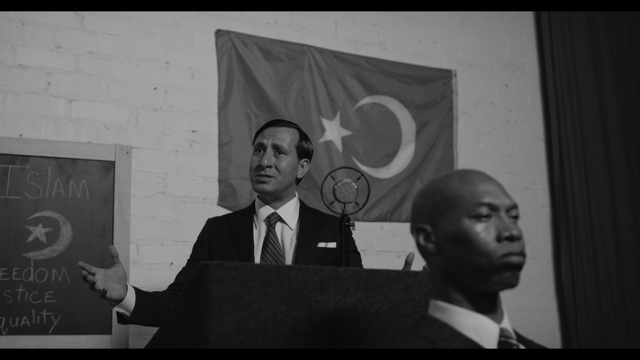
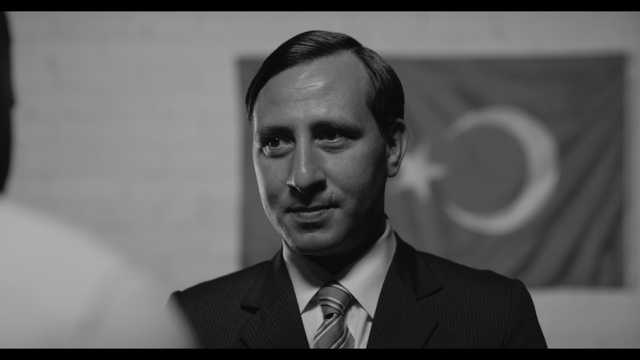
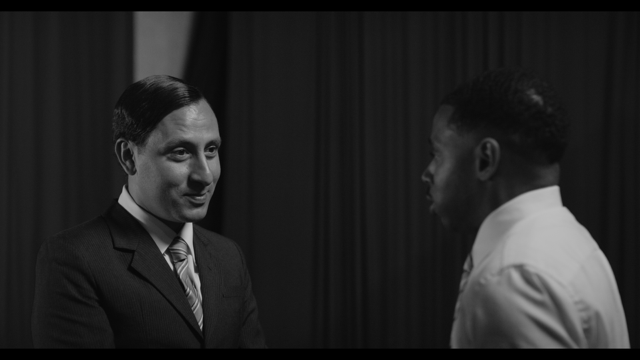
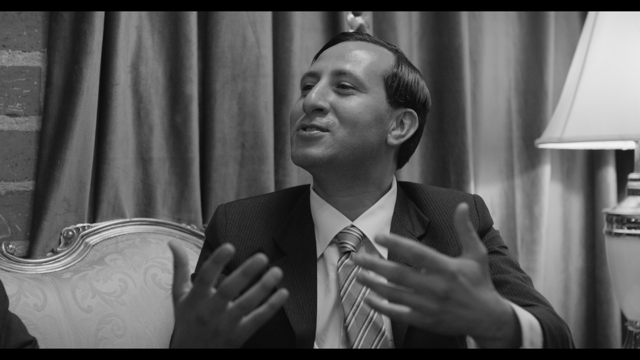
During our brief conversation you mentioned that the man who founded the Nation of Islam had no visual representations. How did you visualize his personality for the purposes of this film?
Me growing up in The Nation I’ve always heard stories of His dealings with us, the time that He was amongst us and I took from those stories along with heavy research. I always imaged Him to be very calm, calculated, and balanced with infinite wisdom, so I made the character in the script that way with every line. I wanted the character of W.D Fard Muhammad to be able to say one thing and mean 100 different things, so a lot of his lines are in code, because to my understanding we call it the teachings of The Most Honorable Elijah Muhammad, because he broke down the coded language of Master Fard Muhammad.
As a member of the Nation of Islam, how do you respond to critics who say you’re not Muslims or ‘True Muslims’?
I would ask them why, because we follow and strive for the righteous things in life to do, the things that The Holy Quran instructs us all to do as Muslims. If it wasn’t for Master Fard Muhammad coming to North America to get us and raising up one from among us in The Most Honorable Elijah Muhammad, to clean us up and him leaving one in his place in The Honorable Minister Louis Farrakhan who continues to guide us in self-improvement to be better people, a lot of us would not have accepted the religion of Islam. The “Us” being the Blackman and women in North America, then the rest of humanity. I feel like we needed a different form of Islam, because of our condition in being ex- slaves and having everything taken from us, our language, culture, religion, and God we needed something to call our own. We should let Almighty God; Allah be the judge on who is a true Muslim or not.
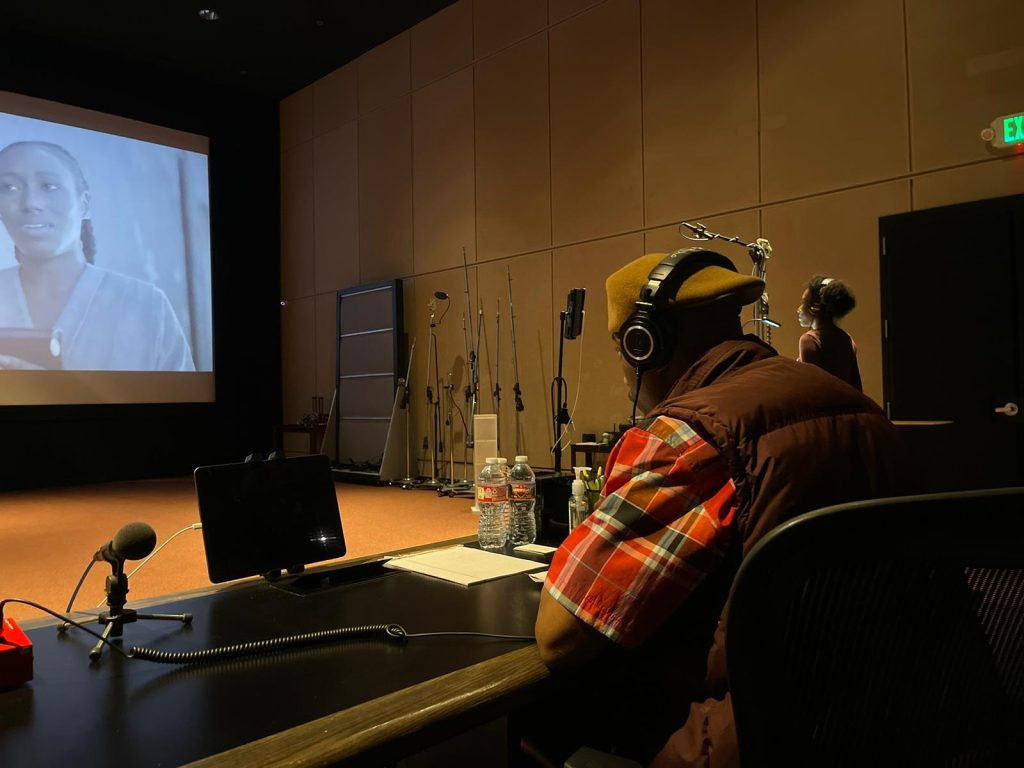
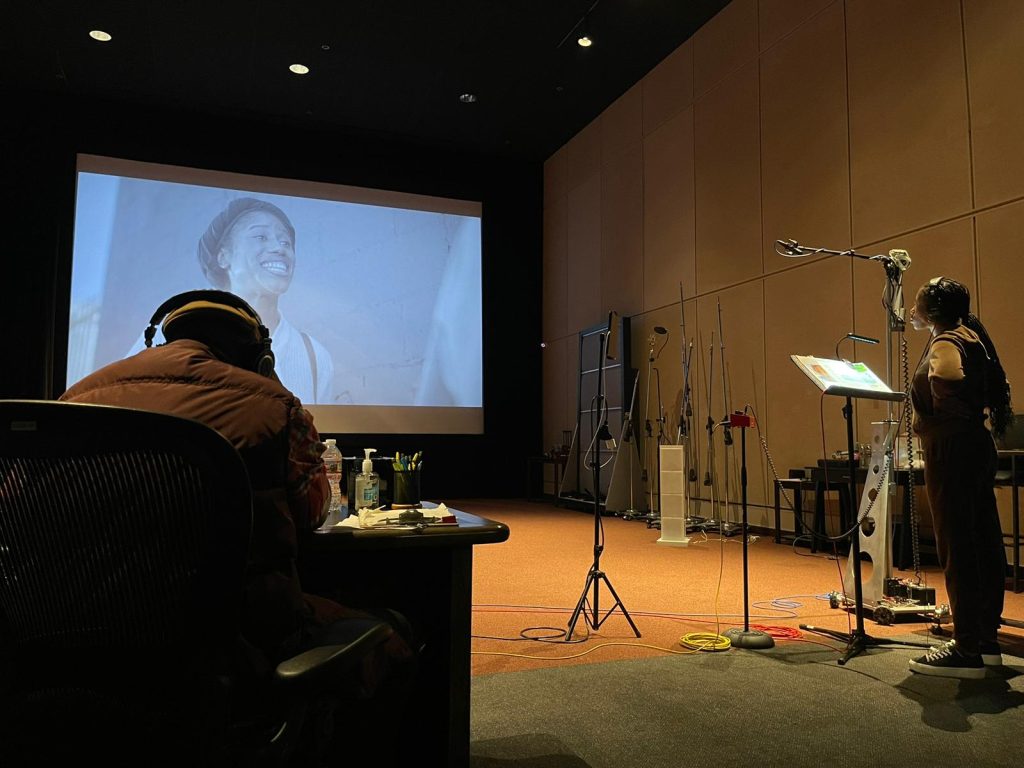
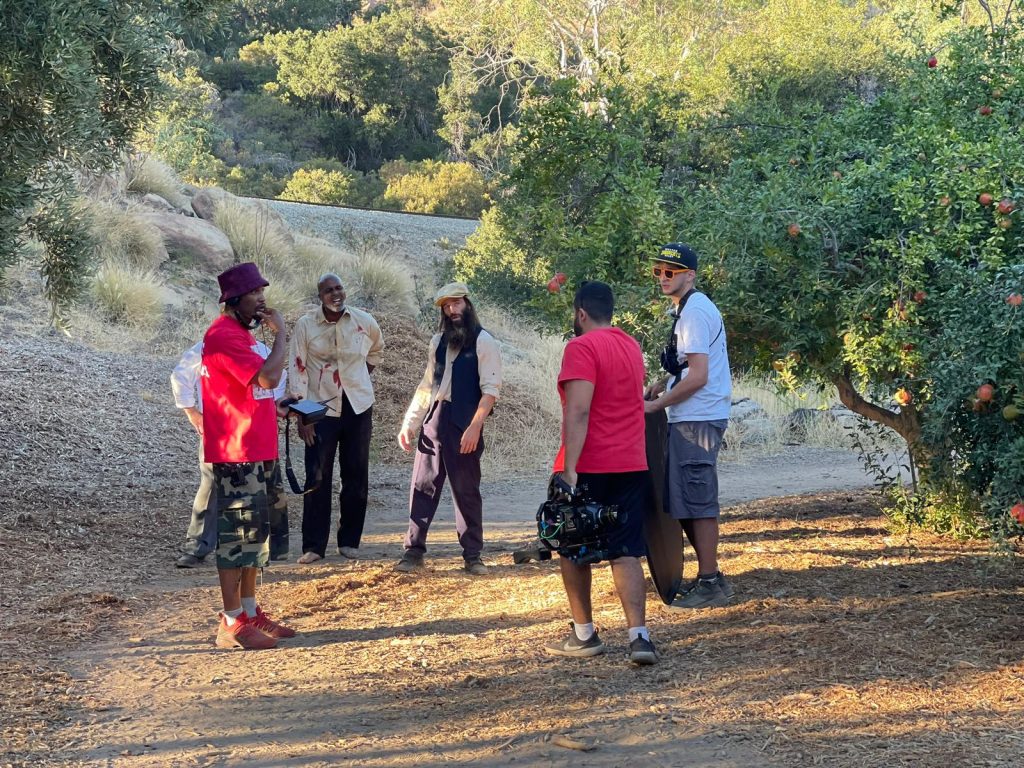
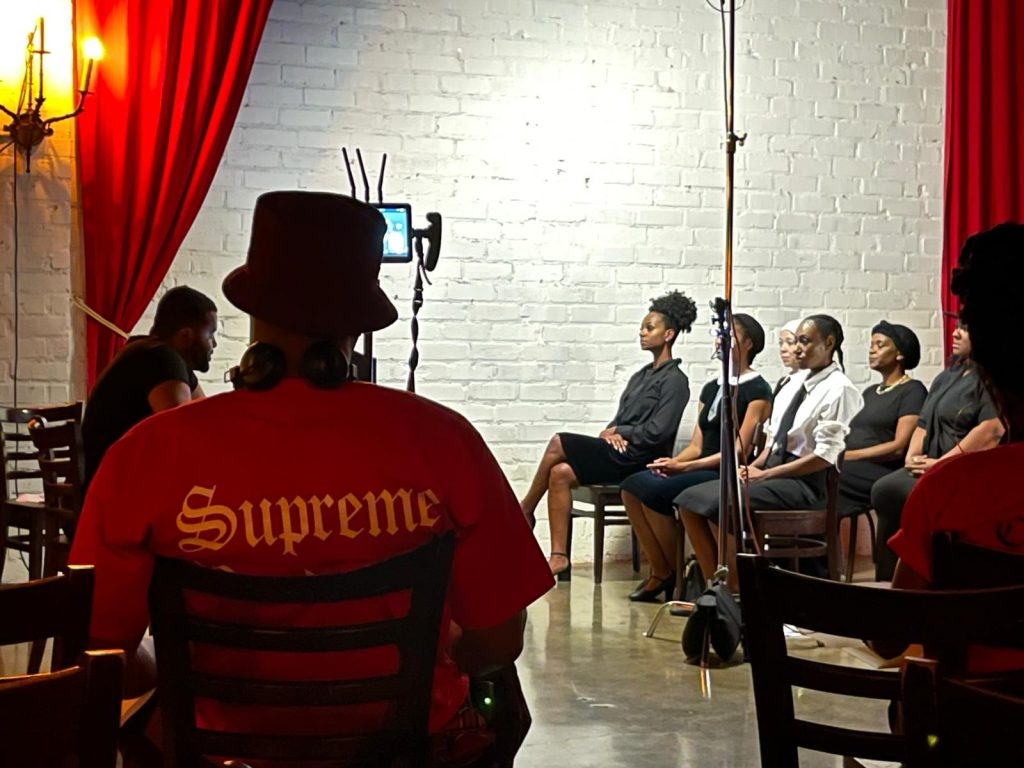
How will you describe your childhood?
I had a blessed childhood. I can recall in the rebuilding years going to Muhammad University of Islam and Brother Minister Abdullah Muhammad and Sister Shelby Muhammad would teach to us as young Muslim men before we went to class and basically gave us civilization, things such as being clean at home and abroad; and how to conduct ourselves as young Muslim men in general. These teachings have stayed with me too this day.
What inspired you to consider film making as a career?
Well, the idea of working on “The Savior” has brought me here. My love for the project has inspired and driven me into filmmaking. I will make content that will rock the world.
Let’s talk about the man who played the role of ‘The Savior’. How do you think he being a Muslim himself contributed to the character and the film as a whole?
Yes, my brother Mico, I thank Almighty God, Allah for my brother Mico Saad who portrayed W.D Fard Muhammad (The Savior). I believe that Mico was the missing piece to this project, he looks so similar to Master Fard Muhammad, he’s from the East just like Master Fard Muhammad, he speaks different languages like Master Fard Muhammad and lastly, he’s Muslim, so for me it was an absolute no brainer, it had to be Mico.
How will you describe your relationship with Mico Saad?
Brother Mico is my Muslim brother. He has been such a blessing to this project. How does a live Muslim brother from Philly and a humble Muslim brother from Egypt cross paths. One of the things Master Fard Muhammad promised us is friendships in all walks of life.
Describe Mico in three words
Mico is very humble, cheerful and wise.
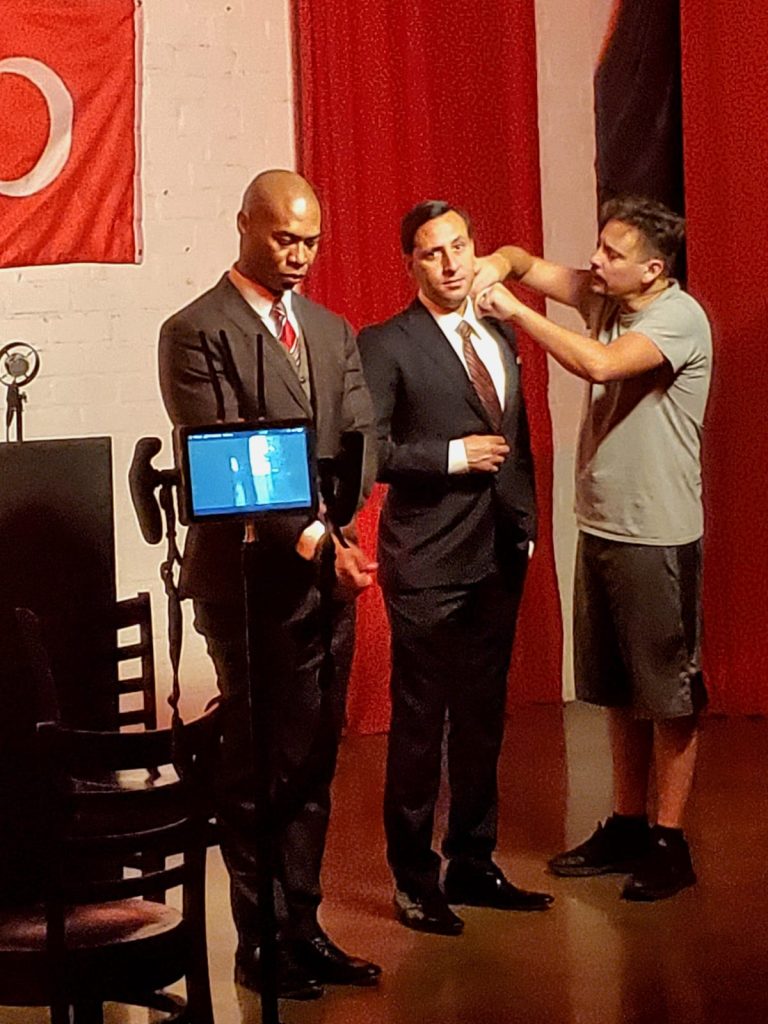
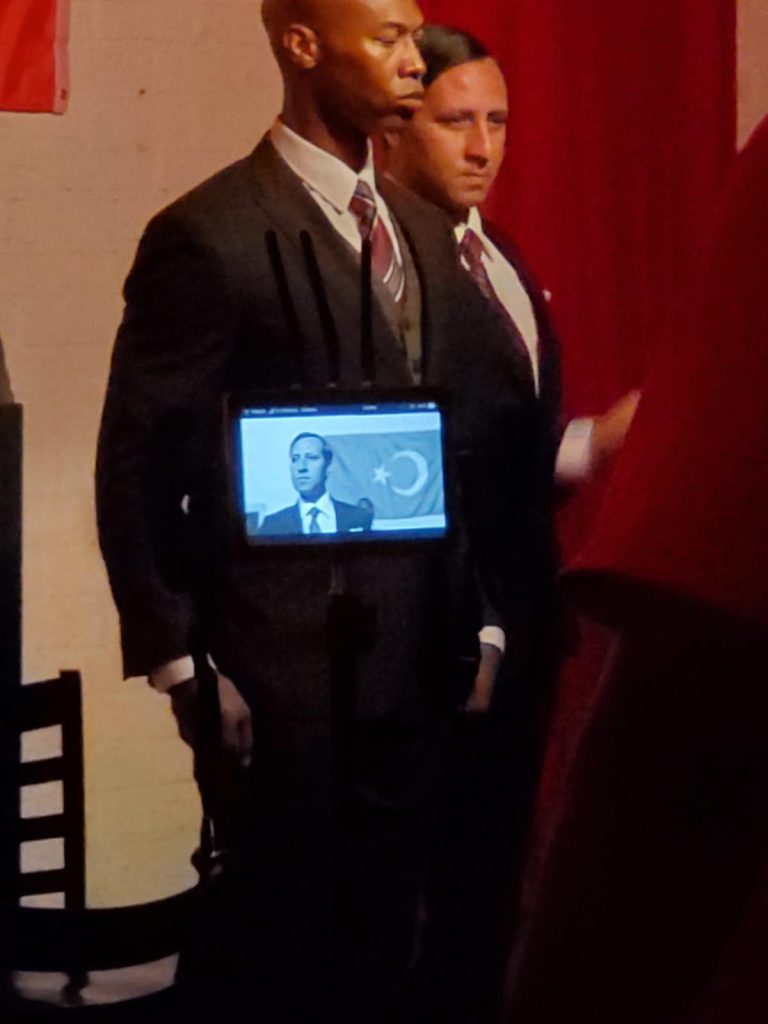
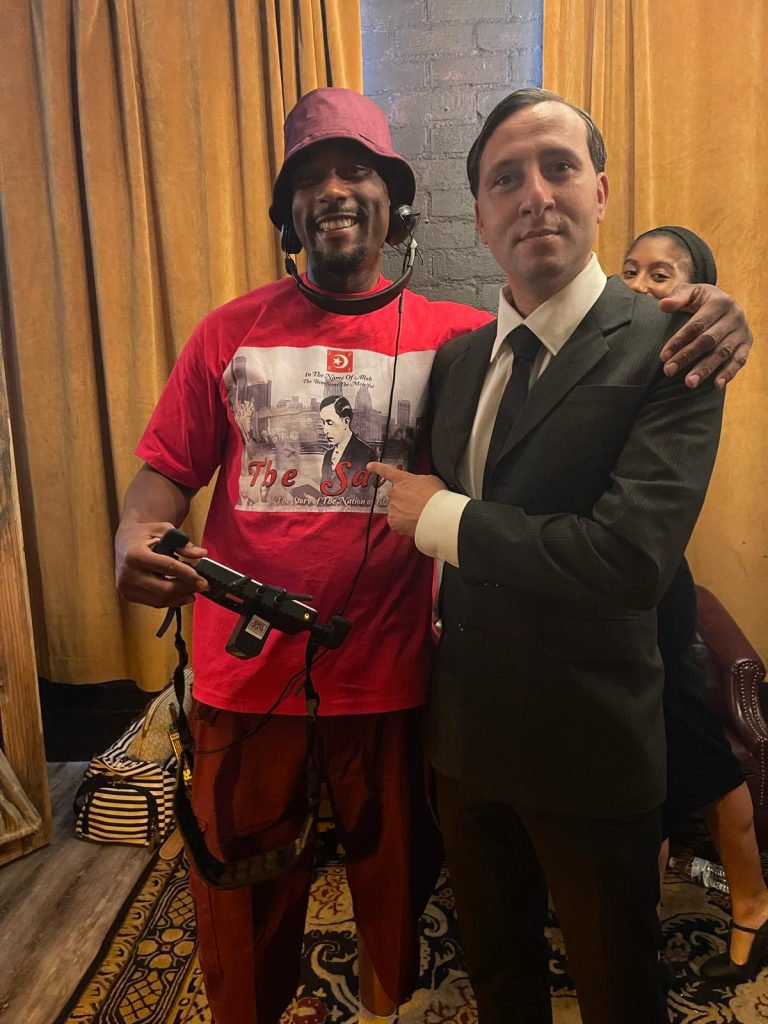
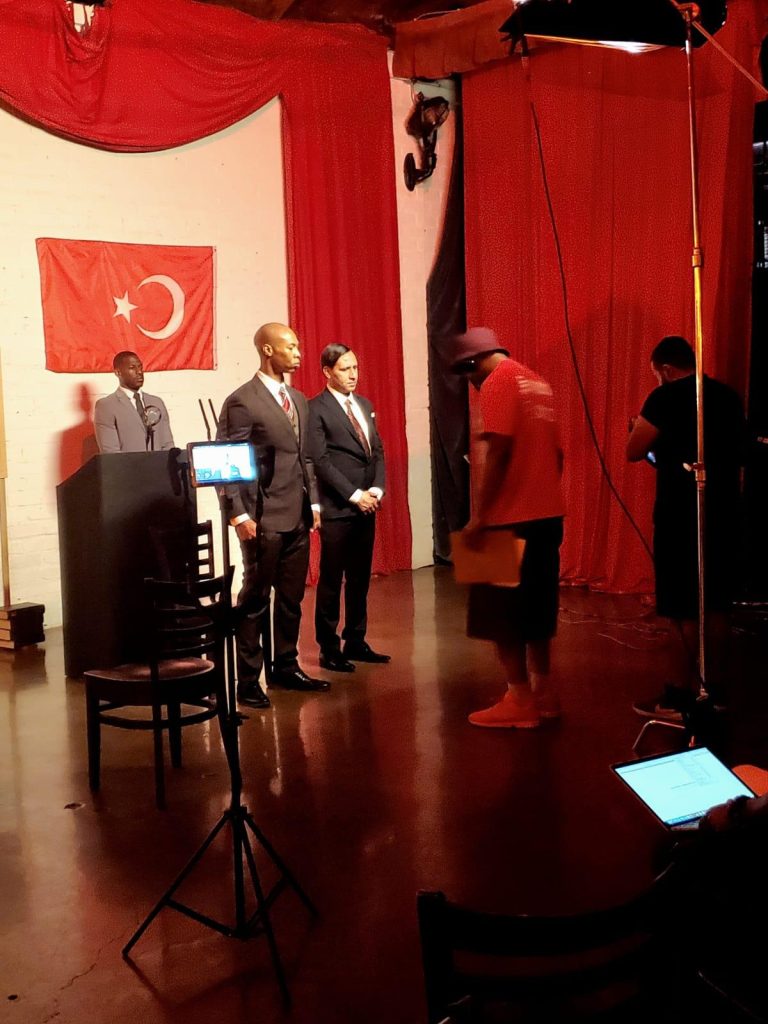
Who are your Top 5 Black film directors?
My top 5 directors would be Amma Asante for the way she portrays her period pieces. Tyler Perry for his shot selections. Nia Dacosta, I really like what she did with “Candyman” she really did the script justice. John Singleton one of the realist people that I came across in Hollywood. John was able to show different elements of the black experience from his point of view coming from South Central Los Angeles. He dealt with black love and black hate and allowed some of his movies to in body that. He even directed one of my favorite martial art movies “Abduction”. Spike Lee definitely has his own style.
What will the nature of your conversation be if you had audience with Spike Lee?
If I were to have a conversation with Spike Lee, I would be like an empty cup and just absorb as much information as I can. I know that he has a wealth of knowledge being in the industry for as long as he has.
What role do you think this film will play with regards to Black history?
I believe that it will play a major role in black history because it’s the first of its kind. It is my hope that this film “The Savior” will inspire others to make movies about historical black figures.
What’s your opinion about how as Blacks we tell our stories through film? Will you say we’re utilizing this medium of communication to adequately tell our stories?
I think that we can do better. Sometimes or most times, I believe we think inside the box where we only want to do what’s going to make us some money or get to the bag, so there is no effort in what we are doing, so we put up trash and present it to the world. It’s a question about frequency. A lot of us as film makers need to raise our frequency’s so that we can produce a different kind of content and not just everybody producing the same stuff. We are a beautiful and creative people with a plethora of stories, and we should let the world know our true stories the way we want to tell them.
Thank you for your time, director Sulaiman Muhammad. It been a special pleasure talking to you.
Thank you, my brother, for this interview it is an honor for me.
